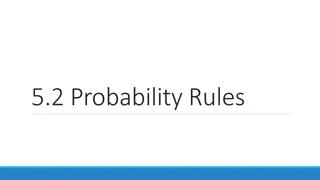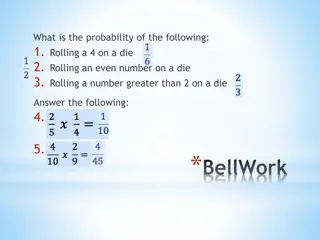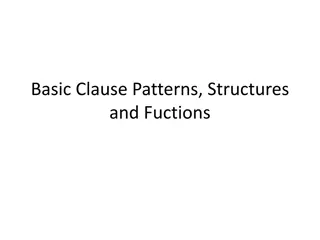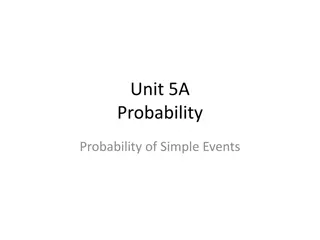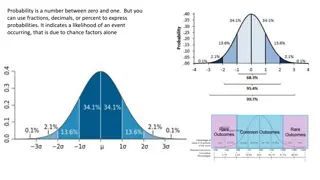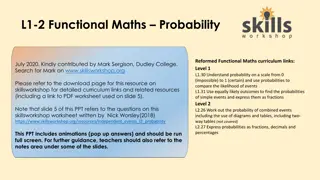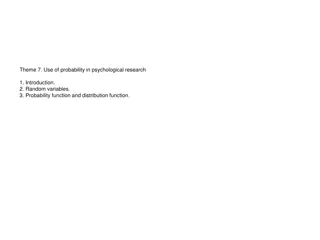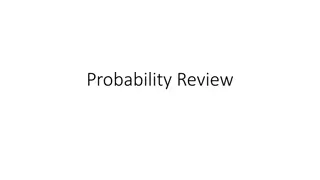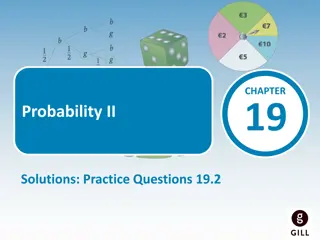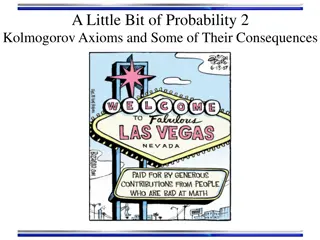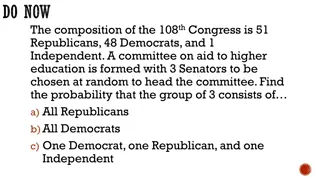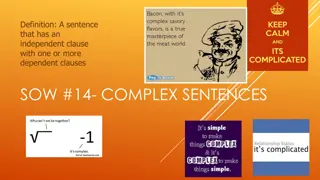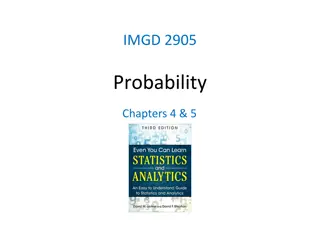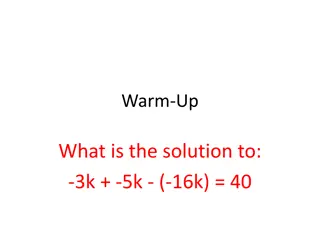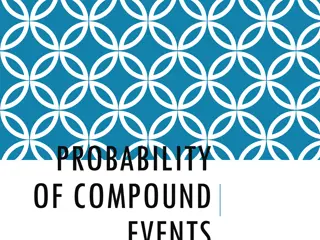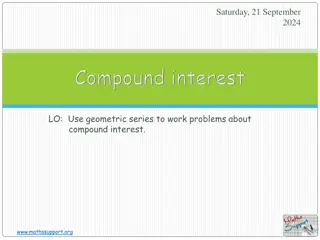Understanding Probability: Independent, Dependent, and Compound Events
Dive into the world of probability with a focus on independent, dependent, and compound events. Explore scenarios where events are interconnected or standalone, and learn how to calculate the probabilities of different outcomes. Discover the concepts of mutually exclusive and overlapping events through practical examples, enhancing your knowledge of probability theory.
Download Presentation

Please find below an Image/Link to download the presentation.
The content on the website is provided AS IS for your information and personal use only. It may not be sold, licensed, or shared on other websites without obtaining consent from the author. Download presentation by click this link. If you encounter any issues during the download, it is possible that the publisher has removed the file from their server.
E N D
Presentation Transcript
13-4 Compound Probability
Compound Event: an event that is made up of two or more events Independent Even: if the occurrence of an event DOES NOT affect how another event occurs Dependent Event: if the occurrence of an event DOES affect how another event occurs
Problem 1: Identify Independent and Dependent Events Are the outcomes of each trial independent or dependent events A) Choose a number from 12 tiles. Then spin a spinner B) Pick one card from a set of 15 sequentially numbered cards. Then, without replacing the card, pick another card
Probability of A and B If A and B are independent events then: ? ? ??? ? = ?(?) ?(?)
Problem 2: Finding the Probability of Independent Events A desk drawer contains 5 red pens, 6 blue pens, 3 black pens, 24 silver paper clips, and 16 white paper clips. If you select a pen and a paper clip from the drawer without looking, what is the probability that you select a blue pen and a white paper clip?
Probability of Mutually Exclusive Events Mutually Exclusive Events: Events that cannot happen at the same time Example: you cannot roll a 2 and a 5 with a dice at the same time ? ? ?? ? = ? ? + ?(?)
Problem 3: Finding the Probability of Mutually Exclusive Events Student athletes at a local high school may practice in only one sport each season. During the fall season, 28% of student athletes play basketball and 24% are on the swim team. What is the probability that a randomly selected student athlete plays basketball or is on the swim team?
Probability of Overlapping Events Overlapping Events: have outcomes in common. Example: when rolling a dice; the event of rolling an even number and the event of rolling a multiple of 3 overlap because a roll of 6 is favorable for both ? ? ?? ? = ? ? + ? ? ?(? ??? ?)
Problem 4: Finding Probabilities of Overlapping Events What is the probability of rolling either an even number or a multiple of 3 when rolling a standard dice?




